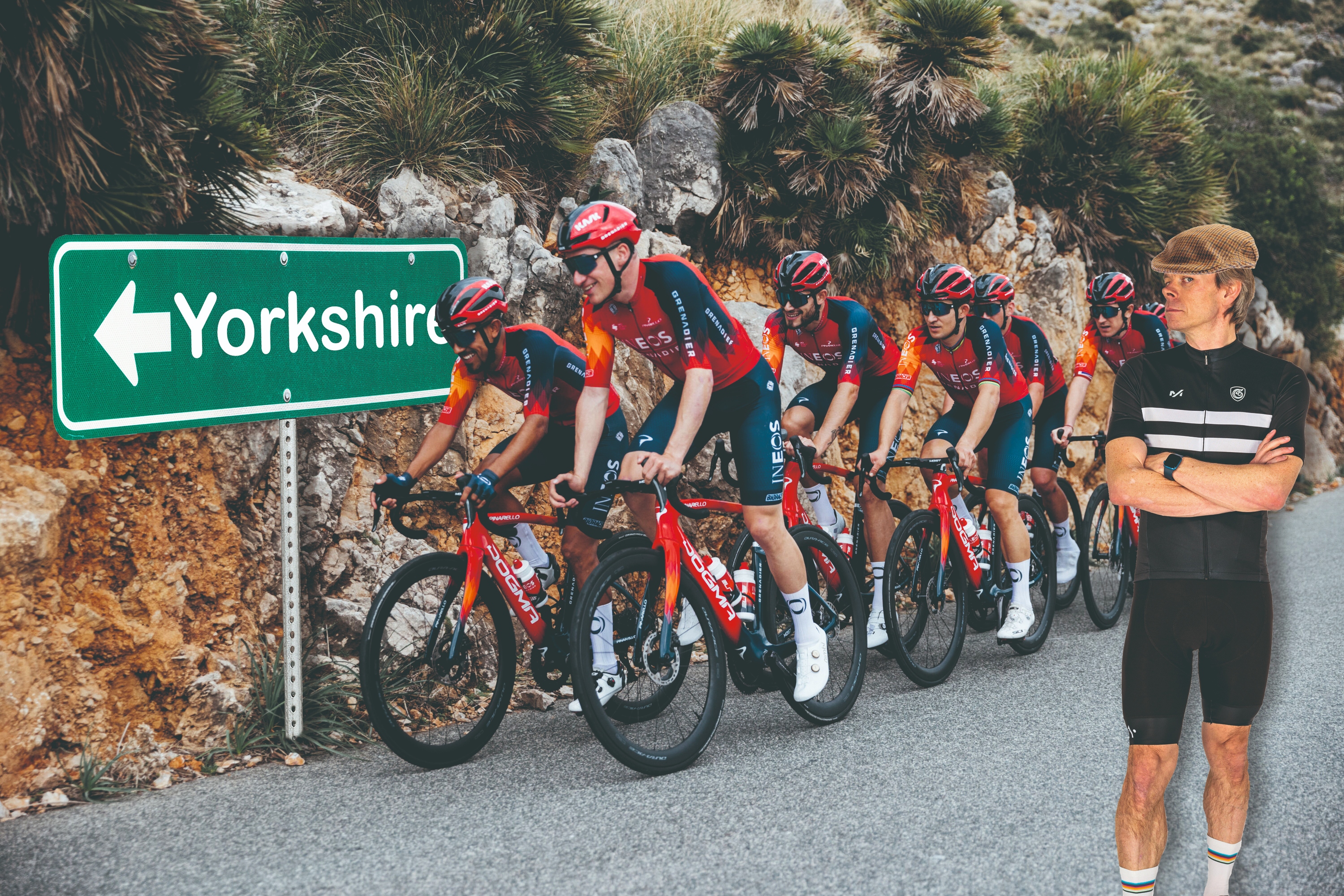
There is a theory in sports training that you should ‘train hard to race easy’ – that is to say if you make life hard enough in your training, when race day comes you’ll be breezing along on the tops while the world’s best bike riders drop off your wheel with cries of surrender and supplication.
Part of this theory specifies that you should seek out difficult conditions in training, conditions that replicate the genuine stresses of racing. So you should train at altitude, if you’ll ever have to race up a proper mountain. Or you should train in the heat, or in high humidity.
I was chatting about this with a coach a couple of weeks ago. “It means you need to train in different places,” he said. “And you need to find places that are difficult to ride. There’s no point in doing it all in Mallorca on nice smooth roads in the sunshine. Go up a mountain. Ride in a desert. Everywhere in the world is perfect for working on something.”
“What about the UK?” I asked.
We both thought about it for a long time. Then we ordered another coffee each and talked about aero helmets instead.
I suppose the first thing I thought of was the UK’s rough, rough roads. Surely training on potholed roads is sufficiently unpleasant to constitute ‘training hard’ for something? But Britain is not exactly coming down with Paris-Roubaix winners. Magnus Backstedt won P-R in 2004 and liked it so much that he moved to Wales, but that’s not quite what I mean.
Perhaps the UK has more subtle benefits. It’s the perfect place to train for one of the less appealing aspects of riding in the pro peloton: team directors in BMWs blasting past your elbow at a range of 50 mm while composing an Instagram post on their phone. You can perfect an insouciance for this sort of thing with nothing more than a casual ride more or less anywhere at anytime in the UK. There will always be a BMW driver willing to help.
You can take the close pass a step further if you video it. Because then you can edit the footage, add captions and some music, and you’ll have done valuable work on your Instagram Reels production, without which skill you dare not claim to be a cyclist.
Finally you can send the video to the police, and polish up your ability to shrug when the officials responsible for rider safety totally ignore you.
There are other things. Any commute in or around London will let you get used to the insanely aggrieve desire of other bike riders to get in front of you, even if there’s not the slightest reason they need to be there. I recommend Parliament Square and the Embankment if you’re planning a training camp.
And you can use the same rides for practising how not to get annoyed when some shyster with a motor concealed in their bike breezes past without making any noticeable effort whatever, then swerves in front of you and slams the brakes on.
But I suppose the closest thing to a serious answer would be the weather. You could train for riding in rain, wind and strong winds for much of the year in the UK. But curiously enough, no one ever does. Pros train for everything else, but seemingly they draw the line at drizzle. Not even Ineos has a Yorkshire training camp in February.
When you think about it, the UK could be the perfect place to train for all the bits of bike racing you like the least, from the roads to the weather to other riders. The failure of the UK as a pro training destination makes me suspect that pro riders aren’t nearly as dedicated as they say they are.







